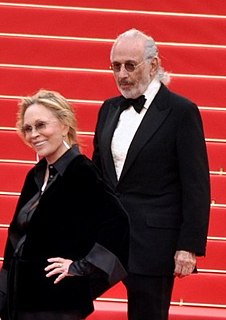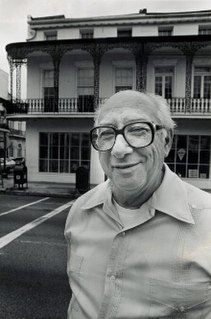A Quote by Noam Chomsky
Intellectuals (in the standard sense of the term, not [ Edward] Said's prescriptive sense) are the people who write history.
Related Quotes
The people we call the prophets I think are the earliest dissident intellectuals, and they're treated like most dissident intellectuals - very badly. They're imprisoned, driven into the desert. King Ahab, the epitome of evil in the Bible, condemned Elijah as a "hater of Israel." This is the first self-hating Jew, the origin of the term. It goes right up to the present. That's the history of intellectuals.
To write with taste, in the highest sense, is to write [...] so that no one commits suicide, no one despairs; to write [...] so that people understand, sympathize, see the universality of pain, and feel strengthened, if not directly encouraged to live on. If there is good to be said, the writer should say it. If there is bad to be said, he should say it in a way that reflects the truth that, though we see the evil, we choose to continue among the living. The true artist [...] gets his sense of worth and honor from his conviction that art is powerful--
Part of the reason I'm writing it is to try to figure out what that is myself. It's not like I came back from Iraq and said, "We need to have a conversation, I know exactly what it is." It was just this sort of sense of something missing and then trying to write toward what that was, and to solicit from other people a sense of what that might be.
I remember reading in a comedy book very long ago when I first started, a person said there's a difference between a sense of humor and a sense of funny. A sense of humor is knowing what makes you laugh and a sense of funny is knowing what makes other people laugh. The journey of comedy, in a sense, is negotiating those two worlds.
London' is a gallery of sensation of impressions. It is a history of London in a thematic rather than a chronological sense with chapters of the history of smells, the history of silence, and the history of light. I have described the book as a labyrinth, and in that sense in complements my description of London itself.
'London' is a gallery of sensation of impressions. It is a history of London in a thematic rather than a chronological sense with chapters of the history of smells, the history of silence, and the history of light. I have described the book as a labyrinth, and in that sense in complements my description of London itself.
There is a palpable sense of history in the homes that I choose to occupy. I think that's one of the reasons I gravitate towards old homes: I really like that sense of history and that sense that I am one step in a very long process that trails out in both directions around me - before me and ahead of me.
































